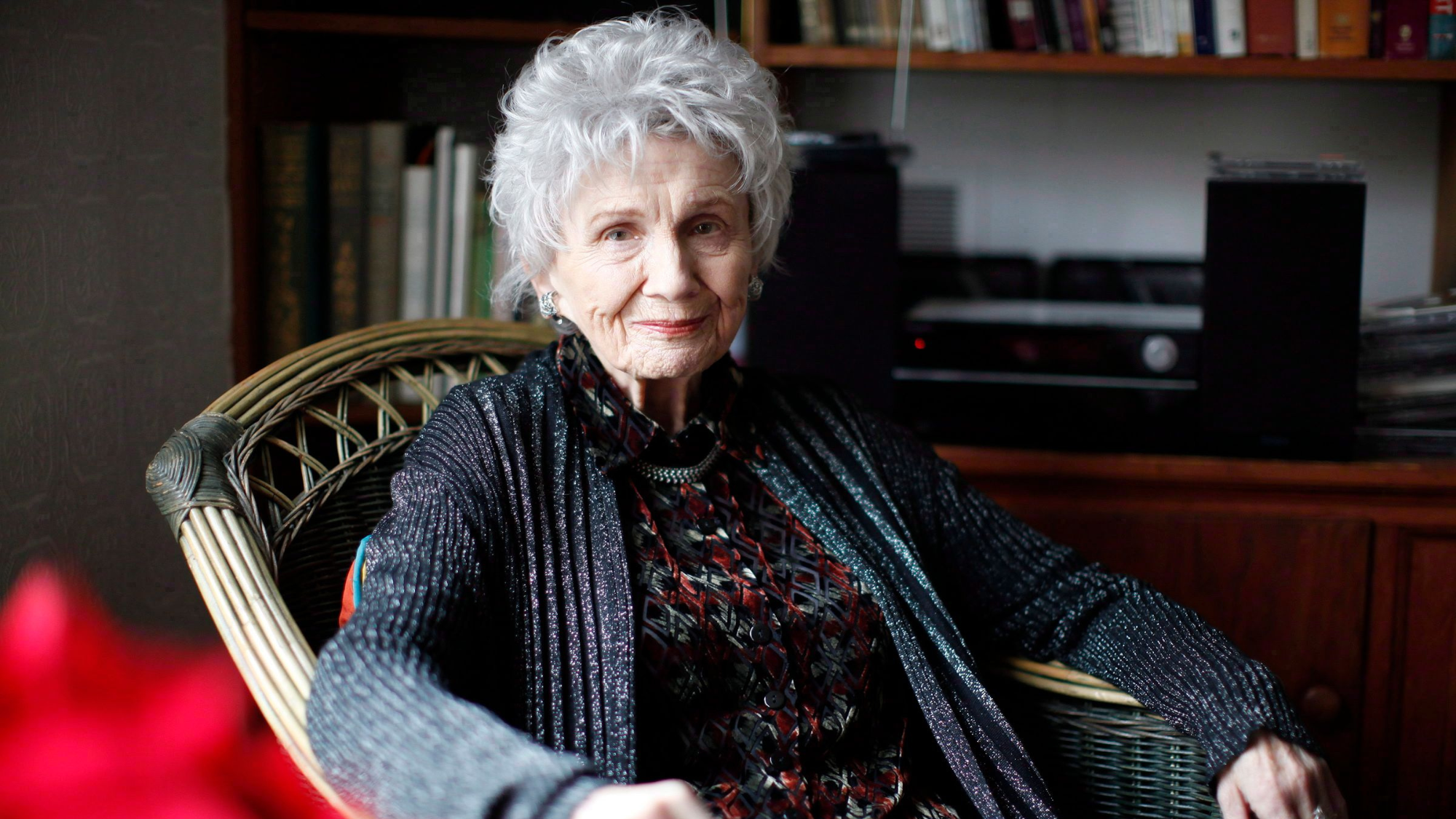Alice Munro: the short-story writer who was 'as good as it gets'
Dear Life author has died aged 92

A free daily email with the biggest news stories of the day – and the best features from TheWeek.com
You are now subscribed
Your newsletter sign-up was successful
Alice Munro often embarked on what she thought was a novel, only to find that the narrative petered out after about 40 pages.
But this hardly mattered, said The New Yorker, because as the citation for her Nobel Prize in Literature put it, Munro, who has died aged 92, could "accommodate the entire epic complexity of the novel" within a short story. She produced more than a dozen collections of them, most focused on the lives of seemingly ordinary women and girls in rural communities in southern Ontario, where she had herself grown up.
Acclaimed for the spare precision of her prose, and the intricacy ofher plotting, she was often compared to Maupassant and Chekhov, said The Times. John Updike described her as a writer who examined small worlds "gimlet-eyed and rabbit-eared", to create ambitious works that are defined by "a well-meditated complexity and multiplicity of plot, an intense clarity of phrase and image, an exceptional psychological searchingness and honesty".
The Week
Escape your echo chamber. Get the facts behind the news, plus analysis from multiple perspectives.

Sign up for The Week's Free Newsletters
From our morning news briefing to a weekly Good News Newsletter, get the best of The Week delivered directly to your inbox.
From our morning news briefing to a weekly Good News Newsletter, get the best of The Week delivered directly to your inbox.
Richard Ford wrote that her absolute mastery of the form was simply a given, in literary circles. "With Alice it's like a shorthand," he said. "You'll just mention her, and everybody just kind of generally nods that she's just sort of as good as it gets."
Starting out
Alice Laidlaw was born in Wingham, Ontario in 1931. Her father owned a fox farm. Her mother, a former teacher, had early-onset Parkinson's, which meant that it fell to Alice to do many of the chores. She was brought up, she said, to think the worst thing you could do was to "think you were smart". But neither this nor her household responsibilities stopped her winning top marks in her exams, and a scholarship to the University of Western Ontario.
She took two jobs, and was still only left with 35 cents a day for food. Possibly she was hungry when she met fellow student Jim Munro in a library. He dropped a piece of candy; she cried, "I'll get it," and they became engaged six months later. They married in 1951, when she was 20, by which time she had already sold one of her stories to a college magazine.
Partly to escape the disapproval of his family, who felt she was not good enough for him, they moved west to Vancouver, where she worked part-time in a library, and he found a job in a shop. "Having a place of our own and a bed of our own where we could carry on as we liked seemed marvellous to us," she wrote. "We had made this bargain, but it never occurred to us that older people – our parents, our aunts and uncles – could have made the same bargain, for lust. It seemed as if their main itch had been for houses, property, power mowers, and home freezers and retaining walls".
A free daily email with the biggest news stories of the day – and the best features from TheWeek.com
Finding an audience
In the early 1960s, by which time they had two children, and had lost a baby at 14 hours, Jim gave up his job and they moved to Victoria, British Columbia, where they ran a bookshop. "Seduced and Abandoned? Relax with a book from Munro's," read a line on a bookmark Alice had designed. Their household was relaxed and bohemian.
After she had a third daughter, the eldest helped out; and her writing flourished. In 1968, her debut collection, "Dance of the Happy Shades", won Canada's equivalent of the Pulitzer Prize. But her marriage was disintegrating and ended in 1972. Not long after, she became reacquainted with an old college boyfriend, Gerry Fremlin. They married in 1976, and settled back in Ontario, 20 miles from her childhood home.
In 1977 she had the first of many stories published in The New Yorker, and her work started to reach an international audience. In 2004, Jonathan Franzen anointed her "the Great One", and urged people to "Read Munro! Read Munro!" Her health started to fail in 2009 and she published her last book in 2012, when she was 81. Fremlin died in 2013. Her daughters survive her.
-
 Companies are increasingly AI washing
Companies are increasingly AI washingThe explainer Imaginary technology is taking jobs
-
 The 9 best steroid-free players who should be in the Baseball Hall of Fame
The 9 best steroid-free players who should be in the Baseball Hall of Famein depth These athletes’ exploits were both real and spectacular
-
 ‘Bad Bunny’s music feels inclusive and exclusive at the same time’
‘Bad Bunny’s music feels inclusive and exclusive at the same time’Instant Opinion Opinion, comment and editorials of the day
-
 6 gorgeous homes in warm climes
6 gorgeous homes in warm climesFeature Featuring a Spanish Revival in Tucson and Richard Neutra-designed modernist home in Los Angeles
-
 Touring the vineyards of southern Bolivia
Touring the vineyards of southern BoliviaThe Week Recommends Strongly reminiscent of Andalusia, these vineyards cut deep into the country’s southwest
-
 Nan Goldin: The Ballad of Sexual Dependency – an ‘engrossing’ exhibition
Nan Goldin: The Ballad of Sexual Dependency – an ‘engrossing’ exhibitionThe Week Recommends All 126 images from the American photographer’s ‘influential’ photobook have come to the UK for the first time
-
 American Psycho: a ‘hypnotic’ adaptation of the Bret Easton Ellis classic
American Psycho: a ‘hypnotic’ adaptation of the Bret Easton Ellis classicThe Week Recommends Rupert Goold’s musical has ‘demonic razzle dazzle’ in spades
-
 Properties of the week: houses near spectacular coastal walks
Properties of the week: houses near spectacular coastal walksThe Week Recommends Featuring homes in Cornwall, Devon and Northumberland
-
 Melania: an ‘ice-cold’ documentary
Melania: an ‘ice-cold’ documentaryTalking Point The film has played to largely empty cinemas, but it does have one fan
-
 Nouvelle Vague: ‘a film of great passion’
Nouvelle Vague: ‘a film of great passion’The Week Recommends Richard Linklater’s homage to the French New Wave
-
 Wonder Man: a ‘rare morsel of actual substance’ in the Marvel Universe
Wonder Man: a ‘rare morsel of actual substance’ in the Marvel UniverseThe Week Recommends A Marvel series that hasn’t much to do with superheroes